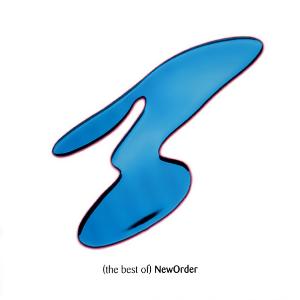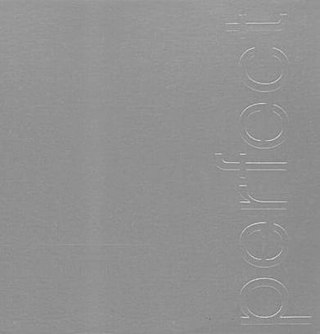
New Order are an English rock band formed in 1980 by vocalist and guitarist Bernard Sumner, bassist Peter Hook and drummer Stephen Morris. The members regrouped after the disbandment of their previous band Joy Division due to the suicide of lead singer Ian Curtis. They were joined by Gillian Gilbert on keyboards later that year. New Order's integration of post-punk with electronic and dance music made them one of the most acclaimed and influential bands of the 1980s. They were the flagship band for Manchester-based independent record label Factory Records and its nightclub The Haçienda, and they worked in long-term collaboration with graphic designer Peter Saville.

Closer is the second and final studio album by the English rock band Joy Division, released on 18 July 1980 by Factory Records. Produced by Martin Hannett, it was released two months after the suicide of the band's lead singer and lyricist Ian Curtis. The album reached No. 6 on the UK Albums Chart and peaked at No. 3 in New Zealand in September 1981. Closer was also named NME Album of the Year. It was remastered and re-released in 2007.

Power, Corruption & Lies is the second studio album by the English rock band New Order, released on 2 May 1983 by Factory Records. The album features more electronic tracks than their 1981 debut Movement, with heavier use of synthesisers. The album was met with widespread acclaim, and has been included in music industry lists of the greatest albums of the 1980s and of all time. The cover artwork was by Peter Saville, and in 2010 it was one of ten classic album covers from British artists commemorated on a UK postage stamp issued by the Royal Mail.

Unknown Pleasures is the debut studio album by the English rock band Joy Division, released on 15 June 1979 by Factory Records. The album was recorded and mixed over three successive weekends at Stockport's Strawberry Studios in April 1979, with producer Martin Hannett contributing a number of unconventional recording techniques to the group's sound. The cover artwork was designed by artist Peter Saville, using a data plot of signals from a radio pulsar. It is the only Joy Division album released during lead singer Ian Curtis's lifetime.

Substance is a compilation album by English alternative dance band New Order. It was released in August 1987 by Factory Records. The album compiles all of the band's singles at that point in their 12-inch versions, along with their respective B-side tracks. The then-newly released non-album single "True Faith" is also featured, along with its B-side "1963" and new versions of "Temptation" and "Confusion".

"Blue Monday" is a song by the British rock band New Order. It was released as a 12-inch single on 7 March 1983 through Factory Records. It appears on certain cassette and CD versions of New Order's second studio album, Power, Corruption & Lies (1983). The track was written and produced by Gillian Gilbert, Peter Hook, Stephen Morris and Bernard Sumner.

Technique is the fifth studio album by English electronic rock band New Order. Released on 30 January 1989 by Factory Records, the album was partly recorded on the island of Ibiza, and incorporates Balearic beat and acid house influences into the group's dance-rock sound. The album was influenced by the then growing acid scene, and Sumner's experiences at Shoom in London.

Low-Life is the third studio album by English rock band New Order, released on 13 May 1985 by Factory Records. It is considered to be among the band's strongest work, displaying the moment they completed their transformation from post-punk hold-overs to dance-rockers. The album shows New Order's increased incorporation of synthesisers and samplers, while still preserving the rock elements of their earlier work. The original Factory CD issues of the album were mastered with pre-emphasis.

The Best of New Order is a greatest hits album by English band New Order. It was released in the United Kingdom on 21 November 1994 by London Records and, with a different track listing, in the United States on 14 March 1995 by Qwest Records and Warner Bros. Records. Like Republic, the band's most recent studio album at the time, the cover and liner notes stylise the group's name as one word (NewOrder) instead of the usual New Order.

Republic is the sixth studio album by English rock band New Order. It was first released on 3 May 1993 in the United Kingdom by CentreDate Co Ltd in association with London Records and on 11 May 1993 in the United States by Qwest and Warner Bros. Records. It was the band's first album following the demise of their former label Factory Records, and would be their last studio album for eight years until 2001's Get Ready.

"The Perfect Kiss" is a song by the English alternative dance and rock band New Order. It was recorded at Britannia Row Studios in London and released on 13 May 1985. It is the first New Order song to be included on a studio album, Low-Life, at the same time as its release as a single. The vinyl version has Factory catalogue number FAC 123 and the video has the opposite number, FAC 321.

"Regret" is a song by British alternative rock band New Order. It was released on 5 April 1993 as the lead single from their sixth studio album, Republic (1993). Stephen Hague is credited as both the producer and as a co-writer. It was the band's first single released on CentreDate Co Ltd following the collapse of Factory Records.

"Touched by the Hand of God" is a song by English band New Order, released as a single on 7 December 1987. The song was originally recorded for the soundtrack to the film Salvation! and the version released as a single was remixed by Arthur Baker. The B-side was a dub remix, titled "Touched by the Hand of Dub", and the release had the catalogue number FAC 193; its production is credited to New Order.

Movement is the debut studio album by English pop group New Order, released on 13 November 1981 by Factory Records. Recorded in the wake of Joy Division frontman Ian Curtis' suicide the previous year, the album is a continuation of the dark post-punk sound of Joy Division's material, increasing the use of synthesizers while still being predominantly rooted in rock. At the time of its release, the album was not particularly well received by critics or audiences, only peaking at number thirty on the UK Albums Chart; the band would gradually shift to a more electronic sound over the course of the next year.

Substance is a singles compilation album by British rock band Joy Division. It was released on 11 July 1988 by Factory Records. It is the companion to a similar singles compilation by their subsequent band New Order, also titled Substance. It peaked at number 7 on the UK Albums Chart and 146 on the Billboard 200, the band's only chart appearance in the United States. It also reached number 15 in New Zealand and number 53 in Australia in August 1988.

Stutter is the debut studio album by English rock band James. Blanco y Negro and Sire Records released it on 28 July 1986. After going through multiple vocalists and guitarists, the band caught the attention of Factory Records. James released two EPs with the label; between them Larry Gott replaced guitarist Paul Gilbertson. The band supported the Smiths twice, before eventually signing with Sire. Between January and March 1986, the band recorded Stutter with Patti Smith live guitarist Lenny Kaye and engineer Gil Norton. Described as a folk rock album, the songs on Stutter tackle the topics of insects, reincarnation and being a tortured artist.

Strip-mine is the second studio album by English rock band James. It was released on 26 September 1988, through Sire and Blanco y Negro Records. After minimal touring and lack of success for their debut studio album Stutter (1986), the label was apprehensive about letting them record another album. Sessions for it were held in early 1987 at Rockfield Studios with Hugh Jones producing the majority of the album, except for "Are You Ready", which produced by Steve Power and Steve Lovell. After the recording, the release was delayed a number of times, until it was eventually remixed early the following year at London's Battery Studios. Described as a folk-pop album, the songs on Strip-mine tackled the topics of misinformation, addiction, and human mortality.

1981–1982, also often known by its catalog number "Factus 8", or "1981-Factus 8-1982", is a five-track EP released by New Order in November 1982 by Factory.

Music Complete is the tenth studio album by English rock band New Order. It was released on 25 September 2015 by Mute Records, their debut on the label. The album features guest vocals from Elly Jackson of La Roux, Iggy Pop, and Brandon Flowers of The Killers.



















